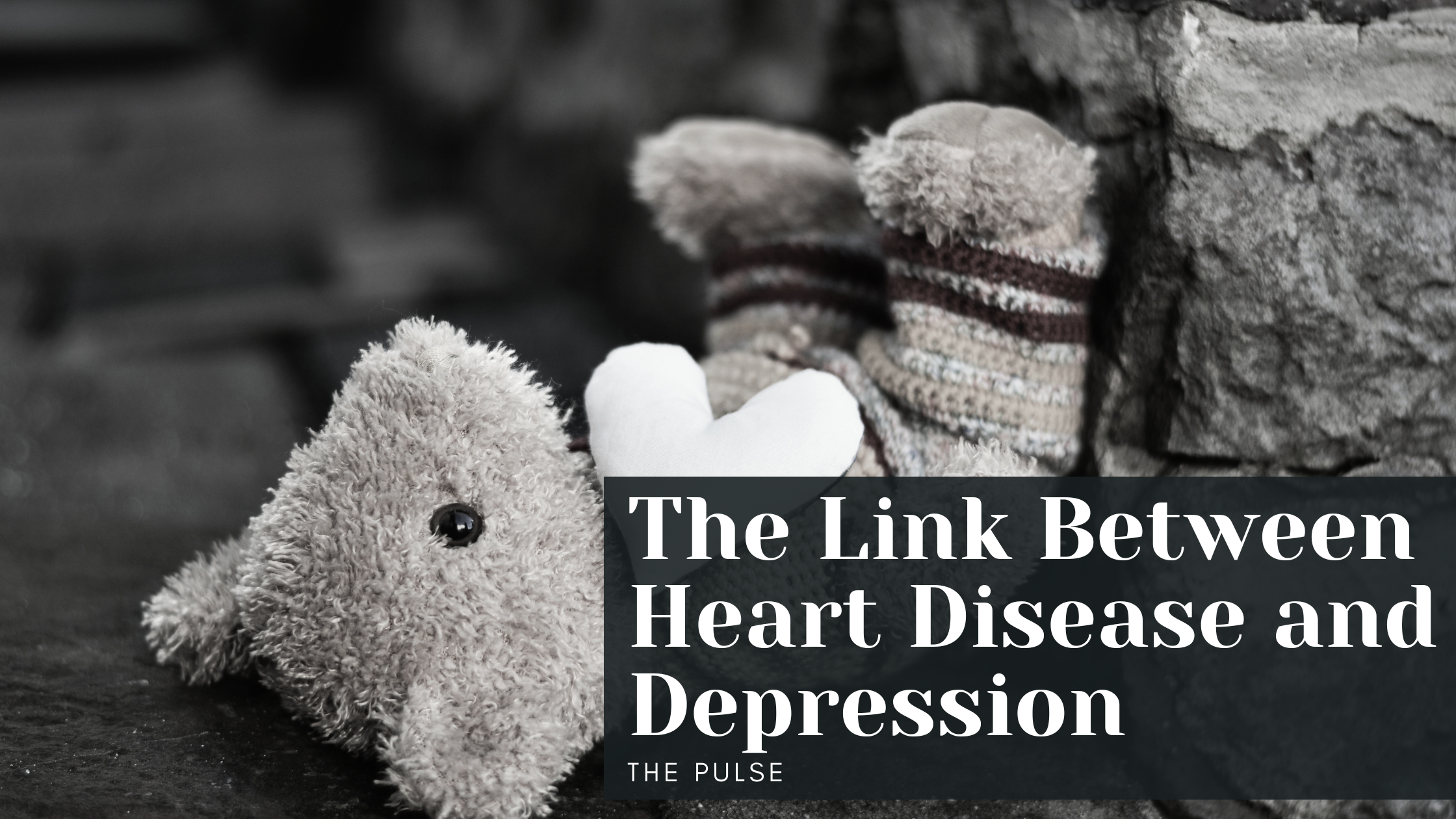The Link Between Heart Disease And Depression

Heart disease and depression are two prevalent health issues that affect millions of people worldwide. The World Health Organization (WHO) listed cardiovascular diseases (CVDs) as the leading cause of death globally, estimating 17.9 million lives each year. WHO has also approximated 280 million people suffer depression worldwide. But is there a link?
While heart disease and depression might initially seem unrelated, research has uncovered a notable link between the two. A high percentage of individuals with CVDs develop depression, while those suffering from depression are at a higher risk of developing heart disease. Studies indicate that a person with both depression and heart disease is 59% more likely to experience future cardiovascular events such as heart attacks or cardiac death.
Studies have found multi-faceted indications for the connection of these comorbidities. Common risk factors: that can contribute to the development of both heart disease and depression that include a sedentary lifestyle, poor diet, smoking, excessive alcohol and chronic stress. These shared risk factors create a bidirectional relationship between heart disease and depression:
- Heart Disease as a Risk Factor for Depression:
Individuals with heart disease often experience increased emotional distress, which can contribute to depression. Persistent sadness, hopelessness, and anxiety can lead to chronic stress and inflammation, raising blood pressure, altering heart rate variability, and promoting atherosclerosis. Additionally, unhealthy coping mechanisms, such as emotional eating and lack of exercise, can exacerbate heart disease risk factors. - Depression as a Risk Factor for Heart Disease:
The diagnosis of heart disease can trigger significant emotional distress, including feelings of fear and helplessness. The necessary lifestyle changes and physical limitations imposed by heart conditions can further contribute to depression and reduced quality of life.
Symptoms of Depression
Everyone feels depression differently but some of the most common symptoms to watch for include (but are not limited to):
- Unexplained weight loss or gain
- Changes in sleeping patterns (insomnia or hypersomnia)
- Persistent feelings of low energy and tiredness
- Difficulty concentrating, making decisions, or planning
- Feelings of hopelessness
- Thoughts of death or suicide
It is important to recognize and treat depression. If you or someone you know is suffering this disorder it is important to speak with a health care professional for the optimal treatment plan for that person.
Treatment Methods for Depression
Understanding that depression is a disorder and not something to be ashamed of or guilty about is the first step. Typically, depression is treated through a combination of antidepressant medication and psychotherapy, but incorporating additional strategies can enhance treatment and overall well-being. Considering the undeniable link between heart disease and depression, it is crucial to adopt a holistic approach to healthcare that addresses both conditions simultaneously.
General Strategies for Managing Depression & Heart Disease
- Integrated Care: Ensure healthcare providers collaborate to screen for both heart disease and depression. Treating both conditions simultaneously can lead to better outcomes and overall well-being.
- Understanding and Identifying Depression: Recognize that depression is a disorder and work to identify its sources.
- Support System: Build and maintain a strong support network. Connecting with friends, family, or support groups can help alleviate feelings of isolation and provide necessary emotional support.
- Mental Health Counseling: Seek professional help from mental health counselors or therapists to manage and overcome depression.
- Healthy Lifestyle Choices:
- Diet: Follow a heart-healthy diet.
- Exercise: Incorporate regular physical activity into your daily routine.
- Stress: Implementing stress-reduction techniques.
- Routine and Self-Care: Establish a consistent bedtime and morning routine with self-care practices.
- Substance Use: Reduce or eliminate alcohol and other substances that can worsen depression.
- Celebrate Wins: Acknowledge and celebrate your achievements, no matter how small.
The intertwined nature of heart disease and depression underscores the importance of a comprehensive, integrated approach to treatment. By acknowledging the link between these conditions and addressing them simultaneously, individuals can achieve better health outcomes and improve their quality of life. Combining effective medical treatment with lifestyle changes, strong support systems, and consistent self-care is essential in managing both heart disease and depression. Embracing this holistic approach ensures that both physical and mental health are given the attention they deserve, leading to a more balanced and fulfilling life.
Heart Disease and Depression: A Two-Way Relationship
| NHLBI, NIH. 16 Apr. 2017,
https://www.nhlbi.nih.gov/news/2017/heart-disease-and-depression-two-way-relationship.
“How Does Depression Affect the Heart?” Www.Heart.Org,
https://www.heart.org/en/healthy-living/healthy-lifestyle/mental-health-and-wellbeing
/how-does-depression-affect-the-heart.
Accessed 9 Sept. 2024.
Depressive Disorder (Depression).
https://www.who.int/news-room/fact-sheets/detail/depression.
Accessed 9 Sept. 2024.
Cardiovascular Diseases.
https://www.who.int/health-topics/cardiovascular-diseases.
Accessed 9 Sept. 2024.
“Depression.” Heart and Stroke Foundation of Canada,
https://www.heartandstroke.ca/en/heart-disease/recovery-and-support/emotions-and-feelings/depression/.
Accessed 9 Sept. 2024.
Depression and Heart Disease. 5 Jan. 2023,
https://www.hopkinsmedicine.org/health/conditions-and-diseases/depression-and-heart-disease.
